The main goal of ERP software is to integrate formerly separate databases and processes into a single source of truth, instead of these databases and processes functioning in silos. When a customer places a product order, the ERP creates transaction information within customer relationship management and inventory management modules, along with any other modules connected to sales activities.
The main goal of ERP software is to integrate formerly separate databases and processes into a single source of truth, instead of these databases and processes functioning in silos.
When a customer places a product order, the ERP creates transaction information within customer relationship management and inventory management modules, along with any other modules connected to sales activities.
When a customer places a product order, the ERP creates transaction information within customer relationship management and inventory management modules, along with any other modules connected to sales activities.
The ERP (Enterprise Resource Planning) implementation life cycle consists of several phases that guide the process of integrating ERP software into an organization's operations. Here's a breakdown of the typical phases in the ERP implementation life cycle.
The success rate of ERP implementations varies, but studies show that approximately 25% to 30% of ERP implementations are considered successful in terms of being on time, within budget, and meeting the expected benefits.
Implementing an Enterprise Resource Planning (ERP) system is a complex process that requires thorough planning and careful execution. Here are the steps to plan an ERP implementation:




